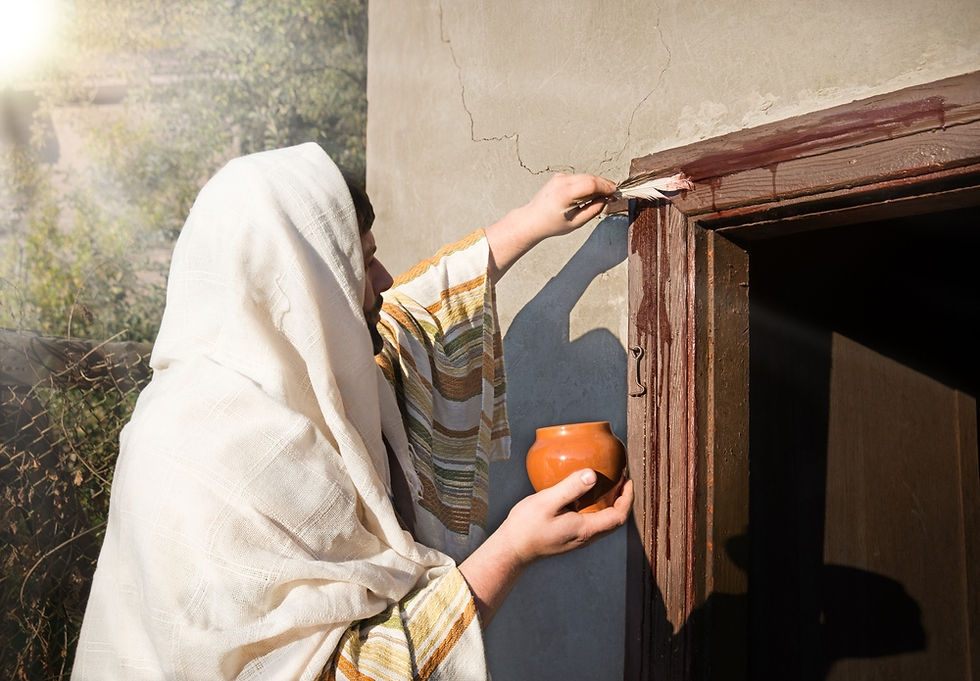
In a few short days believers in Messiah from around the world will be celebrating His resurrection from the dead. I love to point out that Easter is actually a Jewish holiday!
Leviticus 23:9-11 speaks of Chag ha-Bikkurim, the “Festival of Firstfruits:”
And the Lord spoke to Moses, saying, “Speak to the children of Israel, and say to them: ‘When you come into the land which I give to you, and reap its harvest, then you shall bring a sheaf of the firstfruits of your harvest to the priest. He shall wave the sheaf before the Lord, to be accepted on your behalf; on the day after the Sabbath the priest shall wave it.
Barley and wheat were both planted in autumn and harvested in spring. Barley matures faster and would have been harvested first. This is the harvest mentioned above, and was to be commemorated with a special offering.

On this day, a sheath of barley was waved before the Lord as a symbolic gesture of thanksgiving and dedication of the greater harvest to come later in the year. This wave offering would take place three days after the celebration of Passover.
The prophetic symbolism is brilliantly clear. As the Passover foretells the sacrificial death of Messiah, the Festival of Firstfruits, occurring exactly three days later, points us to His resurrection from the dead. It is from this ancient Hebrew tradition that the apostle Paul draws his teaching concerning the resurrection in 1 Corinthians 15. Here Paul tells us that
But now Messiah has been raised from the dead, the firstfruits of those who have fallen asleep (1 Corinthians 15:20, TOL).
What's the connection?
In a prophetic sense, Yeshua's resurrection was like a "wave offering" presented before the Father as the "firstfruits" of the harvest to come! That harvest is “those who are Christ’s at his coming” (1 Corinthians 15:23). It is amazing to see God’s plan of redemption laid out for us so clearly in the Jewish holidays presented in the Hebrew Bible!
Passover and Firstfruits
Did you know that there is a vital relationship between Passover and Firstfruits (Resurrection Day)? In fact, there could be no resurrection without the sacrificial death of Messiah to which Passover points to.

Paul teaches us that the death of Jesus the Messiah on the cross is foreshadowed in the story of the Passover, with the Passover lamb serving as a type representing the Messiah:
Messiah, our Passover Lamb, has been sacrificed (1 Corinthians 5:7).
Easter Is A Jewish Holiday!
The connection between Passover and the resurrection is revealed to us in the 13th chapter of Hebrews:
Now may the God of peace who brought up our Lord Jesus from the dead, that great Shepherd of the sheep, through the blood of the everlasting covenant, make you complete in every good work to do His will, working in you what is well pleasing in His sight, through Jesus Christ, to whom be glory forever and ever. Amen (Hebrews 13:20).
The writer of Hebrews tells us that the resurrection was brought about “through the blood of the everlasting covenant." This means that the sacrifice of Messiah satisfied the demand for divine justice against sin so completely that the power of death itself was broken. Peter affirmed this same truth when preaching about the resurrection of Messiah on the Day of Pentecost:
This Yeshua, given over by God’s predetermined plan and foreknowledge, nailed to the cross by the hand of lawless men, you killed. But God raised Him up, releasing Him from the pains of death, since it was impossible for Him to be held by it (Acts 2:23-24)
Through his perfect sacrifice, it was impossible for Jesus to remain in the tomb. The demand of divine justice upon sin has been satisfied, and the power of the curse of death has been broken. The feasts of Passover and Firstfruits assure us that one day we too will be resurrected with Him, be like Him, and live with Him forever. Thanks be to God for this blessed hope!
He is Risen!

